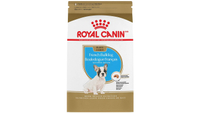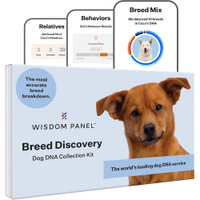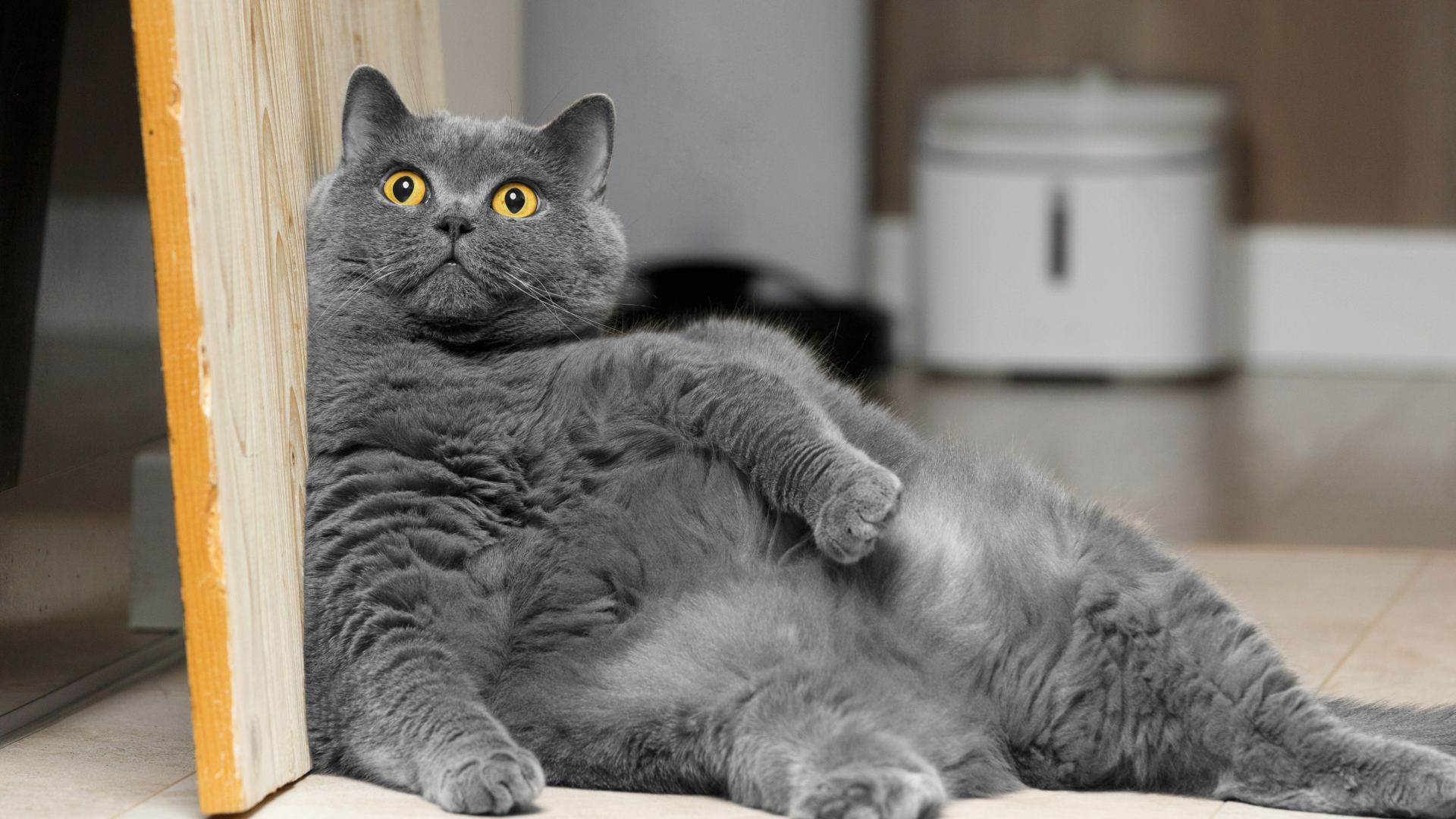French Bulldog: Breed profile
Affectionate and lively with an appetite for play and mischief, the charming French Bulldog makes for a wonderful companion
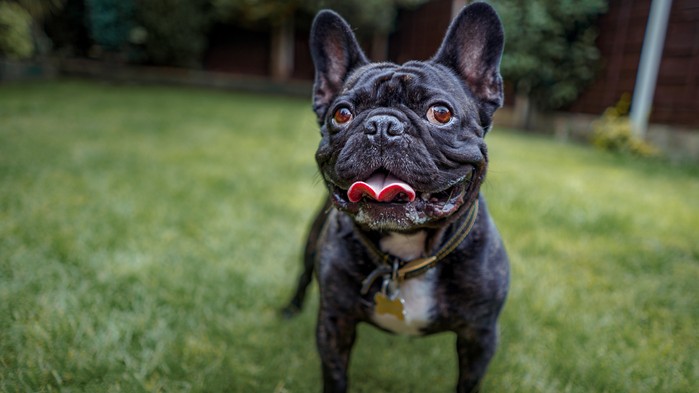
Life expectancy: More than 10 years
Average weight: Male: 28lbs/12kg Female: 24lbs/11kg
About the same as: A case of beer
You'd be forgiven for thinking the French Bulldog hails from France, after all, it's baked right on in to their name! And yet, believe it or not, the adorable Frenchie was actually created in England to give people a smaller version of the British Bulldog.
So, where exactly does the 'French' in their name come from? Well, their cute bat-like ears and charming personalities meant that the Frenchie quickly became a hit with lace workers in the mid-19th century who, having been displaced during the industrial revolution, took the dogs to Normandy, France, where they soon became known as the French Bulldog.
Beloved then and beloved now, the Frenchie remains one of the best small dog breeds and it's not hard to see why. They may be relatively petite, but what they lack in size they more than make up for with bags of personality. This is a loving and affectionate dog who is also incredibly fun and playful, and if that's not enough to endear you to them, they're also highly flexible and adaptable, being able to fit in with almost any lifestyle.
But while the Frenchie is indeed a wonderful breed, this beautiful dog isn't without its drawbacks. Unfortunately, these little guys do suffer from ill-health due to their flat faces, which can cause them a great deal of breathing difficulties. They also overheat quickly and are prone to obesity, so they do need regular exercise - just be sure to avoid the hottest parts of the day.
While Frenchies are costly to own, they are such a sweet and loyal breed that it's hard for the pros not to outweigh the cons. Read on to find out everything you need to know about owning a French Bulldog, from training to grooming and everything in between.
How much exercise does a French bulldog need?
Suitable for: Anyone with a small home who wants a fun companion who doesn't need much exercise
Not suitable for: Owners who want an energetic dog that loves the great outdoors and can be left alone
Temperament: Affectionate, lively, sociable, playful, alert
Shedding: Light
A couch potato for sure, these lazy little logs would quite happily spend their days lying about, but given their propensity towards chubbiness, daily exercise is vital! Just be sure not to over-exert them as their flat flaces can make breathing during exercise quite a challenge.
Gentle exercise is best for this breed with two daily walks of around 15 minutes each in length being ideal. In addition, try and engage them in another 30 minutes of play throughout the day as this will keep those pounds off without them even realizing it.
Frenchies enjoy games of hide and seek, and their muscular bodies can be kept in shape using the best rope dog toys. Just be careful to ensure you undertake any outdoor activities during the coolest parts of the day as Frenchies are especially susceptible to heat exhaustion, and their breathing problems will worsen significantly, so it's better to go for walks during the early morning and evening.
Are French bulldogs easy to train?
If you're looking for a dog that's easy to train, then look no further than the French Bulldog! High in intelligence and incredibly eager to please, this is one pup that masters commands and instructions with ease.
When training Frenchies, you're looking to be firm and consistent, but as with all dogs, positive reinforcement works best, so make sure to reward them for good behavior. Frenchies love to have fun, so try and approach training in a playful way, doling out the best dog treats and plenty of praise as you go along.
It's also really important that everyone living in the home is onboard with the training as mixed messages will make your life a nightmare. The Frenchie isn't a dog that can be allowed to do something one day and then told not to do it another, everyone needs to be singing from the same song sheet right from the beginning, and if you are, training will be a breeze.
French bulldog temperament
The fun-loving and affectionate nature of the French Bulldog means they make absolutely stellar pets. This is a pup that is truly a joy to be around and because they love people, they'll get on well with everyone in the family. You'll find that they're also great around other pets, especially if they've been exposed to them from a young age.
Frenchies are also welcoming to strangers invited into your home, but they double as decent watchdogs because they're territorial and will bark if someone comes to the door. They're not generally a barking dog, though, which is a relief if you live in an apartment. The downside is that they don't like being left alone, so be aware of that if you lead a busy life that keeps you away from home for long periods - you'll either need to get a sitter or take them with you.
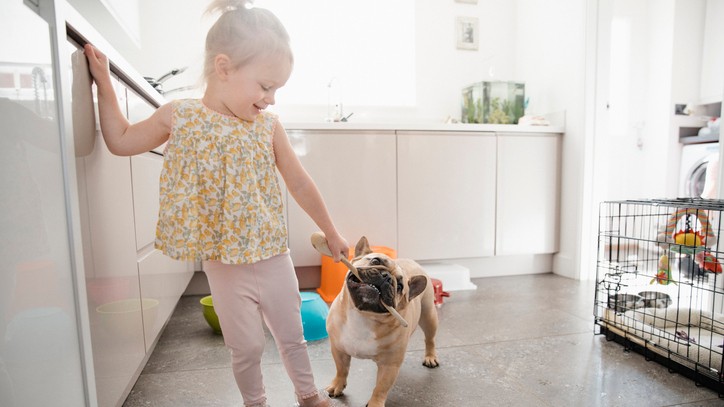
How much does a French bulldog cost?
French bulldog puppies are not cheap. They cost around $2,000 (and around £3,000 in the UK), and you can expect to pay around $2,000 (maybe £1,700) each year to keep them in the best dog food and to pay for vet bills, pet insurance, and all of the dog toys and grooming kit you'll want to buy to keep your dog active, challenged and healthy.
But you may not need to spend too much on formal training and you won't need a home with lots of space and land. Just be aware that there are health problems to take into consideration (see below) so you will need to ensure that your insurance is as comprehensive as it can be with a decent, affordable excess, while ensuring you take it out as soon as you get your dog.
What do French bulldogs eat?
As with all dog breeds, one of the best ways you can keep your Frenchie healthy is to ensure they're eating a balanced and complete diet from one of the best dog food brands. Royal Canin makes a formula especially for French Bulldogs, but there are plenty of other great options out there too.
You'll want to give your Frenchie about one-and-a-half cups of food spread over two or three feedings (depending on whether they're an adult or puppy), and they'll get all the nutrients they need, from carbs and vitamins to minerals, proteins, and fiber.
Consider grain free dog food if you want to reduce flatulence and steer clear of foods that are high in fat, as well as cooked bones and table scraps. Ensure any treats are given in moderation (remember, obesity can be a problem for this breed), and keep Frenchies refreshed with plenty of water.
Royal Canin French Bulldog Adult Dry Dog Food
Royal Canin French Bulldog Puppy dry dog food is designed to meet the nutritional needs of purebred French Bulldogs aged 8 weeks to 12 months old, and the exclusive, tailor-made kibble helps a French Bulldog easily pick up and chew their food
Do French bulldogs shed a lot?
Amount Of Shedding: Light
Easy To Groom: Yes
General Health: Poor
Potential For Weight Gain: High
Frenchies have short, fine hair that, when healthy, is smooth and shiny, but thankfully shedding is moderate, so you're not going to have to whip out the vacuum cleaner much more than you'd usually do.
What we do recommend is a once-a-week grooming session with one of the best dog brushes to help lessen the amount of fur that you're finding around the house. This will also help stimulate the natural oils in your Frenchies coat, helping it to stay shiny and in tip-top condition.
When it comes to bathing a Frenchie, monthly using one of the best dog shampoos will be more than enough to keep their skin and coat healthy. Make sure to dry your little one well, especially between the folds, and trim their nails regularly.
Wisdom Panel Breed Discovery DNA Kit | Amazon
Not sure exactly what breed your dog is? This kit screens for 365+ breeds – because knowing every detail about your dog helps you understand how best to care for them.
French bulldog health problems
French Bulldogs are known for their health issues. Aside from being prone to putting on weight, breathing difficulties, and overheating, Frenchies are at a greater risk of eye conditions such as painful corneal ulcers, which can lead to blindness if they are not treated in time. They can often be a result of conjunctivitis, a treatable congenital disorder that causes a mass cherry-like protrusion. French Bulldogs can also suffer an inward rolling of the eyelid edges (entropion), as well as juvenile cataracts.
If that wasn't enough to contend with, food and environmental allergies can trigger inflammatory bowel disease, as well as excessive itching, watery eyes and diarrhea - if you notice any of these symptoms, speak with your vet who will be able to help you identify the trigger.
And, unfortunately, there's more! Ear infections can be quite common in this breed, as can hip and spine problems. Like other short-legged breeds, Frenchies can also suffer intervertebral disc disease, which can make life painful but it can be managed with anti-inflammatory medication and surgery in some cases. We recommend that you consider investing in the best pet insurance to ensure you have help covering any medical issues that may arise.
Should I get a French bulldog?
As one of the world's most popular pets, you'll certainly be in good company if you decide a French Bulldog is for you – more so given these dogs make great, cute, and adaptable companions. As well as being low-maintenance and friendly, they're particularly suitable for people who lack space. Indeed, since they rarely bark (and only need to go out for short periods each day), they're perfect for apartments.
But Frenchies do have the potential to experience a wide range of health issues that can be costly and they're one of the more expensive breeds to purchase, so if you're on a tight budget, this may not be the best breed for you.
Want to learn more about this breed? Here are our favorite French Bulldog facts
PetsRadar Newsletter
Get the best advice, tips and top tech for your beloved Pets

David Crookes has been a journalist for almost 30 years and he has written for a host of magazines, newspapers, websites and books including the World of Animals Annual, BBC Earth, Live Science, The Independent and Tom’s Guide.
Born in England, he lives with two cats but he’s also keenly interested in the differences between the huge number of dog breeds – in fact, you can read many of his breed guides that he’s written in collaboration with vets here on PetsRadar.
With a lifelong passion for technology, too, he’s always on the lookout for useful devices that will allow people to keep their pets happier and healthier, and provide them more time to spend together.
David has a degree from Durham University, as well as postgraduate diploma in journalism from the University of Central Lancashire.
